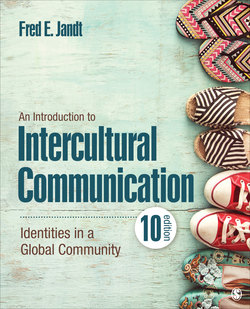Читать книгу An Introduction to Intercultural Communication - Fred E. Jandt - Страница 69
На сайте Литреса книга снята с продажи.
Intercultural Communication Ethics
ОглавлениеAs a branch of philosophy, ethics addresses the question of how we ought to lead our lives or what is right or wrong. The question to consider is whether there is an ethical standard that can be applied to all cultures or whether each culture has its own ethical standards of what is right and wrong.
Kenneth E. Andersen (1991) makes clear that ethical theories tend to reflect the culture in which they were produced and, therefore, present challenges in intercultural communication. Western ethics tend to focus on the individual and individual freedoms and responsibilities (Fuse, Land, & Lambiase, 2010). Other ethics focus more on community. As described in Chapter 1, Confucianism supports a just, orderly society with rituals for relationships that create a harmonious society. Interpersonal relationships and the concept of face are central to Confucianism. Confucian ethics revolve around the concept of li, or the social norms, rituals, and proprieties that characterize an orderly society. A recent study demonstrated that Confucian ethics guide people’s lives today. Zhong (2008) found that U.S. students display a strong sense of individualism, while Chinese students tend toward collectivism. Confucianism is an example of ethics that privilege the community and society, as opposed to Western ethics that focus on individuals and rights.
What, though, guides the interactions of people from cultures with diverse ethical perspectives?
Closely related to intercultural communication competence is ethics. We saw that the understandings of communication and of intercultural communication competence are specific to culture. Are there ethics that transcend all cultures, or are all ethics, too, specific to culture?
Focus on Culture 2.1 is an example of how identity can raise ethical questions.
